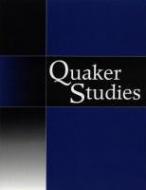
Abstract
I argue in this paper that Robert Barclay fundamentally uses a relational method in doing theology notwithstanding a growing scholarly consensus that his thought is shaped by Cartesian dualism. The claims of dualism in Barclay are assessed through a close textual interpretation of parts of his 1676 work, An Apology for the True Christian Divinity, and his subsequent essay 'The Possibility and Necessity of the Inward and Immediate Revelation of the Spirit of God'. While he explicitly engages Cartesian dualism in this latter work, my conclusion is that when he is arguing apologetically with someone employing dualist categories, as in this essay, he uses Cartesian language in order to find common ground with his audience; but when he reflects on his own experience, he thinks relationally rather than dualistically. That he does not disjoin the self from God, other selves, or its own body, nor does he separate the inward and biblical Christ, has been obscured by his apologetic use of Cartesian dualism. In recognizing his relational approach, we can discover in Barclay's thought a resource for doing Quaker theology today that responds to George Fox's question, 'What canst thou say?'.
Recommended Citation
Keiser, R Melvin
(2000)
"Touched and Knit in the Life: Barclay's Relational Theology and Cartesian Dualism,"
Quaker Studies: Vol. 5:
Iss.
2, Article 4.
Available at:
https://digitalcommons.georgefox.edu/quakerstudies/vol5/iss2/4
